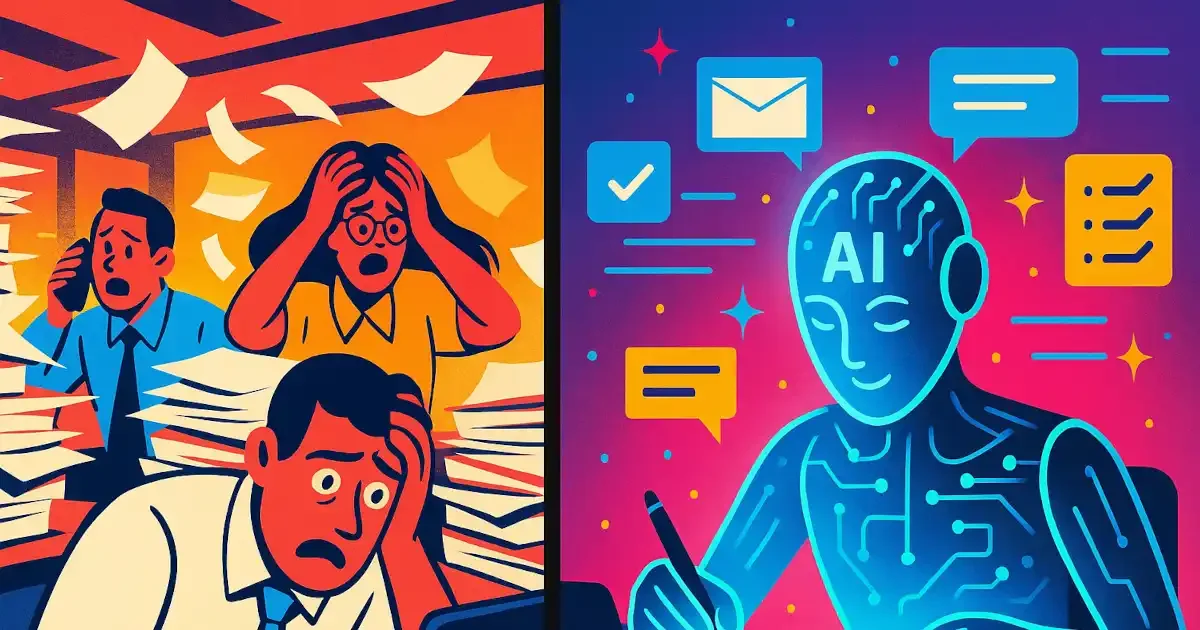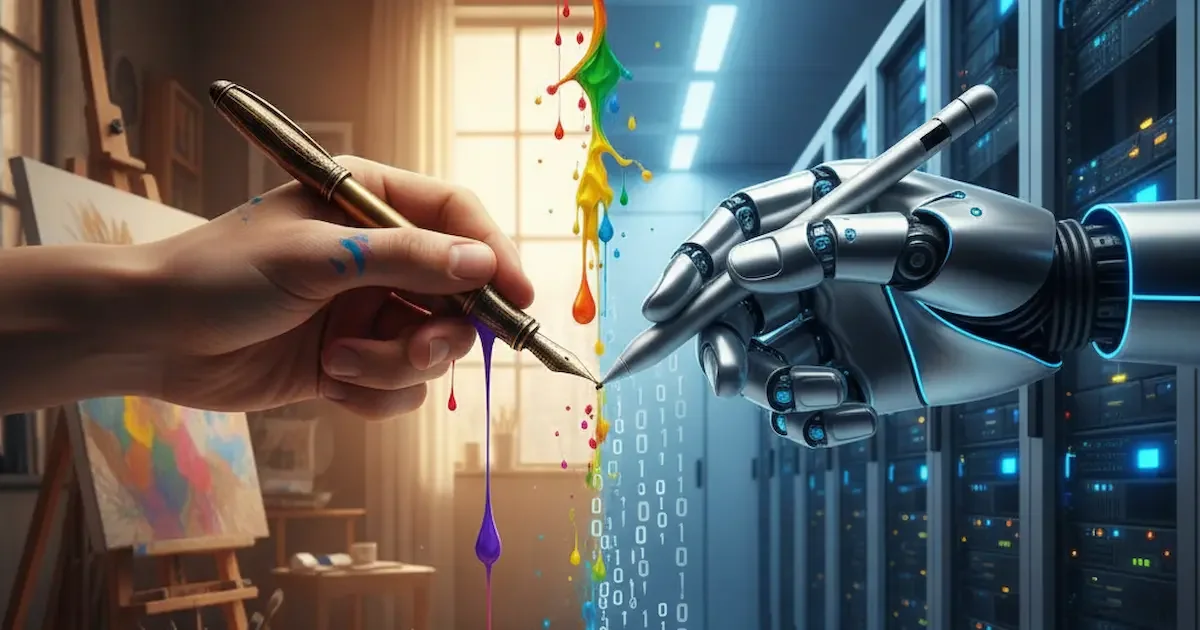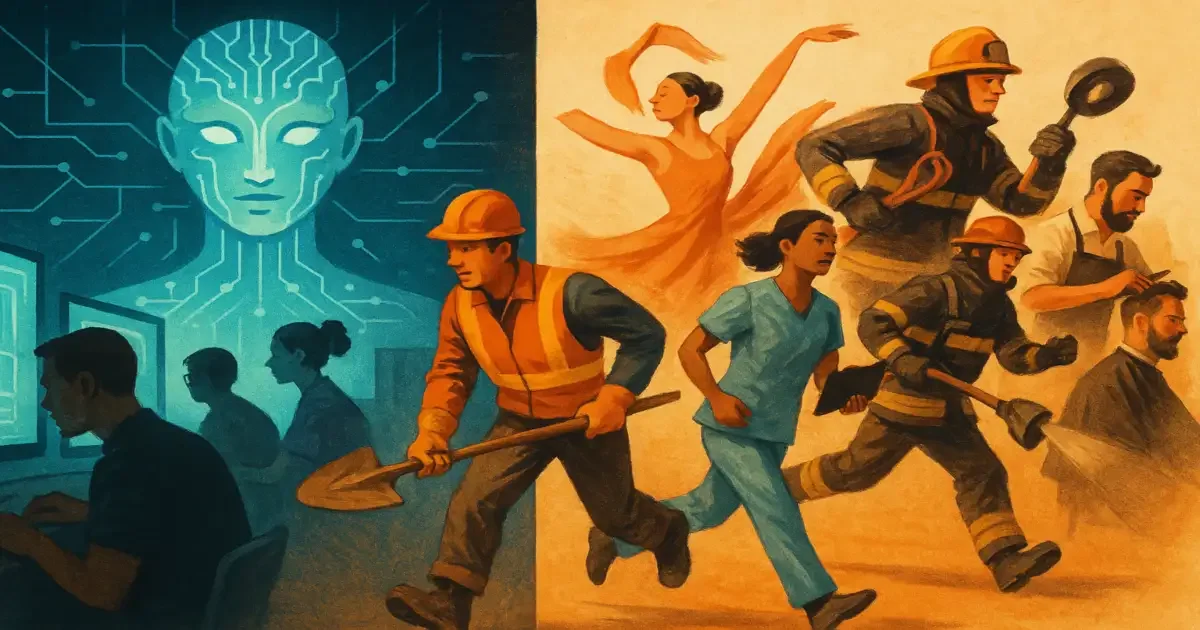So, Which Jobs Is AI Coming For First?
Let’s cut through the noise: AI is not coming for everyone’s job. But it is coming for a big chunk of the tasks that make up your job. And that difference matters.
A fresh Microsoft Research study mapped how much generative AI (think ChatGPT, Copilot, Claude) can already do in different occupations. The researchers weren’t guessing—they analyzed 200,000+ real AI chats to figure out which work activities AI handles well. Spoiler: it’s the reading, writing, explaining, and customer-handling kind of stuff.
That means if your day looks like:
- Gather information,
- Write or edit things,
- Answer client questions,
- Or explain rules to people...
Congratulations, you’re playing in AI’s comfort zone.
The Dirty 40: Jobs AI Can Already Sink Its Teeth Into
Here’s the top 40 list of roles where AI already nails a fat slice of the workload:
- Interpreters & Translators
- Historians
- Sales Reps (Services)
- Writers & Authors
- Customer Service Reps
- Journalists
- Editors
- Public Relations Specialists
- Telemarketers
- Market Research Analysts
- Data Scientists
- Financial Advisors
- Technical Writers
- Proofreaders
- Web Developers
- Political Scientists
- Archivists
- Business Teachers
- Advertising Sales Agents
- Concierges
- … and about 20 more in that same bucket of “information-in, information-out.”
Notice a pattern? None of these involve heavy lifting, building bridges, or surgery. They all involve—you guessed it—words, ideas, and information. Stuff that AI already eats for breakfast.
India’s Twist in the Tale
Now, before you panic-text your boss, let’s bring it home. The study used U.S. job data, but the patterns are painfully familiar in India:
- IT services, BPO, KPO, digital marketing, fintech, edtech—these are packed with roles that match the AI-friendly pattern.
- If you’re in customer support, sales, content, or analysis, you’re closer to the line of fire.
But “line of fire” doesn’t mean “fired.” It means AI is officially your co-worker now.
The Awkward Truth Nobody Wants to Hear
AI won’t replace your job; it’ll replace the parts of your job that are boringly predictable. Drafting the fifth client email of the day? Gone. Proofreading yet another page of text? Gone. Explaining the same tax rule for the 20th time? AI does it faster, cheaper, and without sighing.
What stays with you are the things that need judgment, taste, and trust. People don’t trust a chatbot with their retirement plan. They don’t want AI deciding which story is worth publishing. They don’t want a robot hosting their wedding.
So the better question isn’t “Will AI replace me?” but “What part of my day is AI better at than me—and how do I make peace with that?”
The Bottom Line
The 40 jobs on this list aren’t doomed. They’re just changing first. And if you happen to be in one of them, you’ve got two options:
- Pretend this isn’t happening (spoiler: it is).
- Redesign your workflow so you and AI tag-team the work—AI does the grunt stuff, you do the judgment calls.
Because here’s the thing: AI isn’t here to take your job. It’s here to force you to get better at the parts it can’t do. And if you can’t… well, someone else will.





